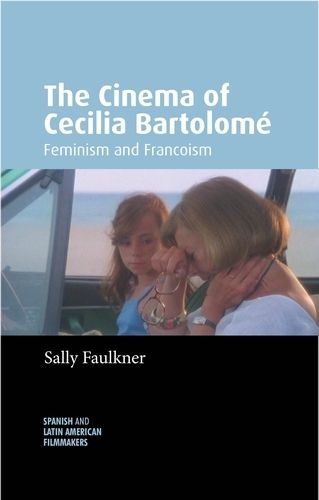Readings Newsletter
Become a Readings Member to make your shopping experience even easier.
Sign in or sign up for free!
You’re not far away from qualifying for FREE standard shipping within Australia
You’ve qualified for FREE standard shipping within Australia
The cart is loading…






Were it not for authoritarian state censorship, Cecilia Bartolome's name would figure alongside those of her contemporaries Agnes Varda and Claire Denis as a pioneering feminist filmmaker of the twentieth century.
With this bold claim, this book seeks both to write the history of Bartolome's extant filmography, and speculative about censored and un-filmed work, thereby fashioning a new way of writing a feminist creative life in film. The first volume on this director to be written in English, The Cinema of Cecilia Bartolome is also the first volume on the director published in any language for over twenty years. By focusing on Spanish-language cinema of the 1960s-90s, the period when feminism, like democracy, was re-born and seemingly consolidated in Spain, the study brings historical depth and transnational reach to current debates in the wake of #MeToo.
$9.00 standard shipping within Australia
FREE standard shipping within Australia for orders over $100.00
Express & International shipping calculated at checkout
Were it not for authoritarian state censorship, Cecilia Bartolome's name would figure alongside those of her contemporaries Agnes Varda and Claire Denis as a pioneering feminist filmmaker of the twentieth century.
With this bold claim, this book seeks both to write the history of Bartolome's extant filmography, and speculative about censored and un-filmed work, thereby fashioning a new way of writing a feminist creative life in film. The first volume on this director to be written in English, The Cinema of Cecilia Bartolome is also the first volume on the director published in any language for over twenty years. By focusing on Spanish-language cinema of the 1960s-90s, the period when feminism, like democracy, was re-born and seemingly consolidated in Spain, the study brings historical depth and transnational reach to current debates in the wake of #MeToo.